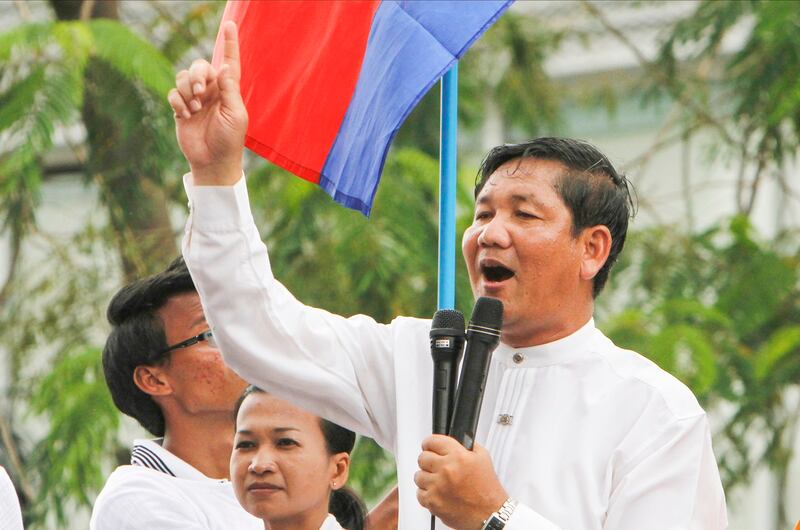Phnom Penh authorities on Friday signed off on a public gathering to commemorate a French colonial decision to cede much of the lower Mekong Delta to Vietnam, but organizers were given strict guidelines on what can be said at the event.
The June 9 gathering will mark the 75th anniversary of the loss of territory known as Kampuchea Krom – a decision that still angers many Cambodians. The region comprises much of present-day southern Vietnam.
The event can be held as long as speakers don’t politicize the event or make any statements that impact the relationship between Cambodia and Vietnam, according to minutes from a meeting between Khmer Kampuchea Krom Association officials and Mean Chanyada, the municipality’s deputy governor.
Association officials requested that 500 people be allowed to attend the event at Phnom Penh’s Wat Samaki Rainsy, but authorities said they would only allow 300 people, and the event could only last for four hours in the evening.
Speakers are also prohibited from inciting people to violence and using any language that affects King Norodom Sihamoni, according to the minutes.

Cambodia's government is dominated by officials from the ruling Cambodian People's Party, which has historical ties to Vietnam. Critics and leading opposition officials such as Thach Setha – who is Khmer Krom – have faced criminal incitement charges for comments related to Vietnam.
Additionally, authorities regularly deny permits for public marches or protests, and police have often arrested activists to prevent or stop demonstrations.
Restrictions and controls
The nearly 1.3-million strong Khmer Krom indigenous community live in a part of Vietnam that was once southeastern Cambodia. They have faced restrictions on freedom of expression, assembly and movement.
Additionally, the Vietnamese government has tried to restrict and control Buddhist temples attended by Khmer Krom people, who are ethnically similar to most Cambodians.
In April, about 100 people protested in Phnom Penh to demand that Cambodia urge Vietnam's government to release 13 activists and monks who were recently arrested.
That event was also held at Wat Samaki Rainsy after the government didn’t grant permission for the use of Phnom Penh’s Freedom Park – the site of large political demonstrations in past years.
The June 9 event will feature a Buddhist ceremony with 75 monks. The commemoration will highlight the suffering of Khmer Kampuchea Krom under the Vietnamese government, association coordinator Kim Sisamna said.
“It is a lesson for all Khmer to remember history, to wake them up and strengthen the spirit of nationalism in the future,” he said.
Translated by Yun Samean. Edited by Matt Reed and Malcolm Foster.
